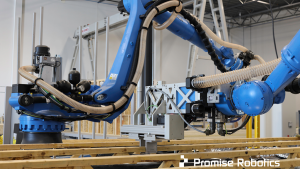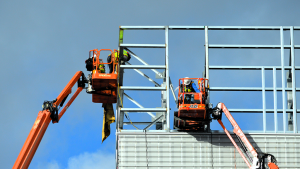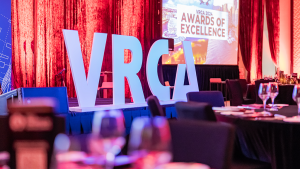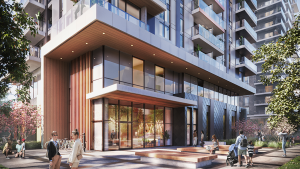Metro Vancouver’s young construction technology sector (contech) is growing quickly and is surprisingly mature for its age, finds a recent report.
The Contech Ecosystem in Metro Vancouver report says there are at least 66 technology companies in the Lower Mainland that develop applications in robotics, internet of things (IoT), modularization, digital twinning, analytics and software that are used by construction companies.
Published in July 2020, the report is a joint effort by Scius Advisory Inc., Vancouver Regional Construction Association, BC Institute of Technology (BCIT) and the Vancouver Economic Commission (VEC).
The hands-on authors are Lara Azarcon and Felippe Calcado, students in BCIT’s Sustainable Business Leadership Program.
“We were surprised at how many contech companies are here and that so many are operating in isolation from each other,” said Helen Goodland, head of research and innovation at Scius. “Although the local construction industry needs to make more use of technology, many companies are unaware of the contech in their own backyard.”
Contech, for its part, could grow bigger and faster if local construction companies made more use of home-grown technology, Goodland says.
If they knew more about each other, both would benefit,
— Alan Shapiro
BC Institute of Technology
“It’s the first time there has been a census of the contech sector anywhere in Canada,” said Goodland.
In the future, more work needs to be done to understand the contech sector, she says.
“There are many more contech companies out there that we haven’t found yet,” she said.
George Benson, VEC sector manager of built environment, says the report shows that Vancouver’s strength in software and digital effects and animation will continue to lead to cross-sectoral fertilization and “that we as an agency should continue to support such efforts.”
“The only small surprise was that we don’t seem to have any greater penetration in construction management software,” Benson said.
Alan Shapiro, an instructor in BCIT’s Sustainable Business Leadership Program, says Vancouver can become a leader in contech and change the regional construction industry.
“Local contech is not producing technologies for the Vancouver market and it and construction are largely ignorant of each other,” said Shapiro. “If they knew more about each other, both would benefit.”
One of the companies enumerated in the contech census is BuiltSpace Technologies Corporation. BuiltSpace creates digital versions of facilities so their performance can be measured and improved.
BuiltSpace collects and organizes data from energy and human activity, enabling its customers to see real-time data across their portfolio of properties or from a single building.
“We’ve been in business for 10 years,” said CEO Rick Rolston. “Most of our customers are in Canada, but we also do business in the US, Australia, the UK and the Middle East.”
A small company (seven employees), BuiltSpace sells its software through a network of indirect sales partners.
“Canada is a leader in smart buildings, and the US looks to us as a leader in the sector,” said Rolston. “There are many pioneers of smart building technology right here in BC. The local sector got a boost when the provincial government said it needed to run its buildings more efficiently.”
BuiltSpace is one of a dozen local companies that develop advanced visualization and digital twinning technology, one of several contech sub-sectors identified in The Contech Ecosystem in Metro Vancouver.
Digital twinning includes building information modelling software (BIM), augmented reality (AR), virtual reality (VR) and other advanced visualization systems that use GPS/GIS, telematics and machine learning.
The single largest Vancouver contech grouping is made up of developers of construction management software.
As the demand for software that can handle large amounts of data increases, developers of construction management systems are moving from desktop-based, manual-entry software to app-based, cloud-computing software.
Measured by revenues, prefabrication and modular construction is the largest contech category.
The 10 companies in this category make a wide range of products, including factory-produced structural elements (e.g. mass timber or concrete composite panels), volumetric units (e.g. modular housing) and specialized pods (e.g. mechanical rooms and bathrooms).
There are eight companies in data analytics, machine learning and artificial intelligence (AI).
AI is relevant to construction because it can help machines react to the environment without human interference – for example, by autonomously analyzing data and solving problems – resulting in reduced errors and faster responses.
Finally, there are 25 companies in Metro Vancouver in robotics, drones, mobile solutions, and internet of things (IoT).
Says the report, “Shifting from a craft-based manual process to factory-based production has the potential to significantly disrupt traditional construction. In the short term, robotics in construction is primarily represented by developments in unmanned or remote-controlled vehicles – on the ground and in the air.”











Recent Comments
comments for this post are closed